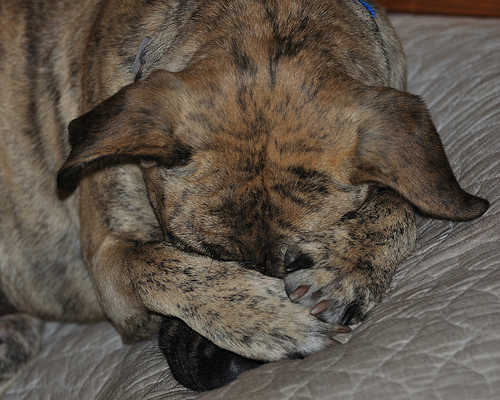if your little guy is over seven years old,now is the perfect time to get him in a regular program of exercise.
Inside your aging pet, just as with us humans, metabolism is slowing, organ function (brain function) is slowing, and the response to disease via the immune system is not what it used to be. In addition, seniors will urinate more often, and will need more frequent walks. It is easy to watch our little ones sleeping. They look so peaceful and comfortable. They seem content to us. But the bottom line is this, a little exercise can improve quality of life and perhaps slow the progression of aging, including the advancement of arthritis.
Exercise stimulates all tissues as it increases blood flow. Tissues become oxygenated and toxins are removed from them easier. Exercise helps bowel function. This is especially important in older dogs. Without adequate use , muscles weaken and atrophy.
1) Walking is excellent. Start with 10-15 minutes a day and then increase to 1-2 hours, three times a week
2) Spend more interactive playtime with your older guy. more tug of war, more games of fetch. You both will benefit from this play.
3) Normally when your guy is sore-he will not want to move. Try glucosamine supplements
4) Watch the weight!!! I cannot emphasize this enough. If you have to switch to light, or weight management, consider those. i supplement these with chicken or liver. Good nutrition is especially important at this stage of life.
5) If you haven’t already, get your senior on a good vitamin and mineral supplement.
6) Finally a younger more active companion makes him want to get up and move. Bella is Chico’s companion, She is now two years old and quite the energized pointer-non-stop. She loves to chase him and he is motivated to run. I supervise this play to ensure that my little guy does not overdo.










